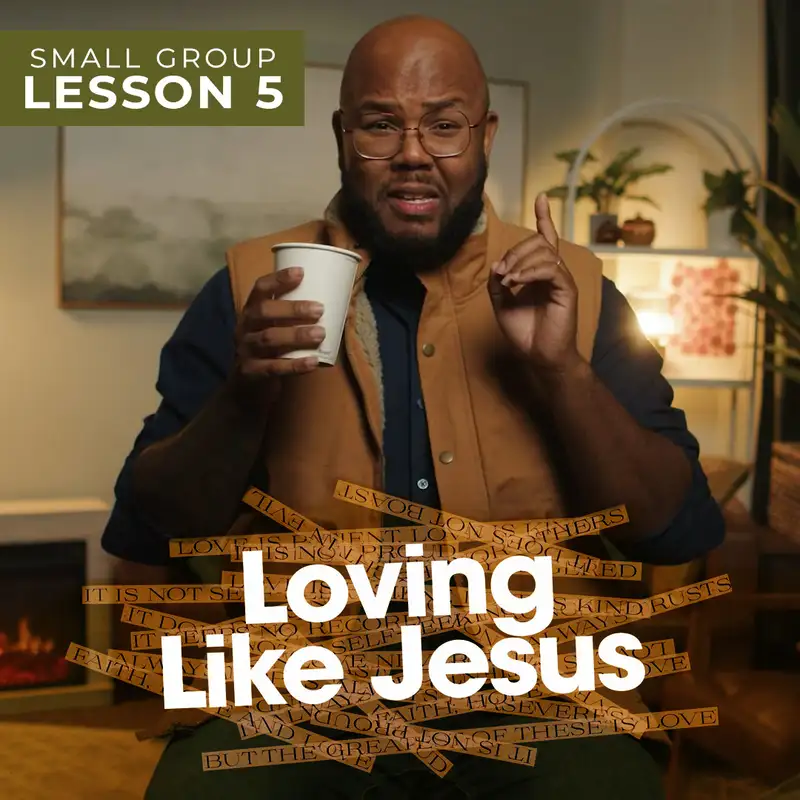What would you give to radically improve, even transform what matters most in your relationships? You can thrive in your
Narrator:career, acquire wealth, or build an excellent reputation. But if your relationships aren't thriving, nothing else matters. Let's explore and begin to practice six foundational principles, including how to give your relationships the highest value, love as Jesus loves you, and communicate from the heart so we can walk a practical path for fulfilling God's intention in all our relationships, especially the difficult ones.
Rev. Terence Gray:Someone said to me once, Terrence, bitterness is like drinking poison and expecting the other person to die. It doesn't hurt them. It hurts you. But for some reason, we still find bitterness satisfying, so it's hard to let it go. It might even taste sweet, but inwardly, it's doing damage to our souls.
Rev. Terence Gray:And maybe we don't take a big gulp all at once. Instead, we find ourselves sipping from it every time we check social media, we take a sip. Or when we take a call, we take a sip. Or we remember something that they did, and we take a sip. And over time, bitterness does its corrosive work, making us sad, suspicious, calloused and cold hearted, chronically anxious, or just not in the best position to give or receive love.
Rev. Terence Gray:See, if I'm still holding on to bitterness, then maybe my hands are full. I can't receive love with this hand if it's full of bitterness. God loves us so much that he says, drop the bitterness. Drop the vendetta, drop the revenge plot. I have something better.
Rev. Terence Gray:In Genesis, Esau carried a grudge against his brother Jacob for twenty years. He was hurt, deeply hurt by betrayal, deception, and family dysfunction. And scripture says that bitterness took its root in him. It grew into something toxic. But then comes one of the most powerful moments in the Bible.
Rev. Terence Gray:Esau sees Jacob again, and instead of attacking him, he runs to him, he embraces him, he weeps, he drops the cup of bitterness, he does the hard thing, and he does the only thing that makes any relationship sustainable: He forgives. And unless you and I somehow become perfect, or we find our relationship, ourselves in relationship with perfect people, we must cultivate the ability to forgive because that's the only way that relationships will last. Now, this is not to say that boundaries are not necessary. Sometimes we might even find ourselves in a relationship that's unsafe, causing us to have to forgive from a distance. Forgiveness does not mean that you or I must stay in an abusive relationship.
Rev. Terence Gray:So sometimes we might need to create space between ourselves and another person. But even from a distance in the safety of our boundaries, we live better and become more of the person who God has called us to be when we drop the bitterness. That's what love does. Love chooses to lay down the poison. Ephesians chapter four verse 32 says, be kind and compassionate to one another, forgiving each other, just as in Christ God forgave you.
Rev. Terence Gray:You can't fully forgive until you've seen how deeply you've been forgiven by God. The cross reminds us that forgiveness always costs something, and Jesus paid it all so that we can live free. I love the way that Doctor. Tim Keller once described forgiveness. He says, True forgiveness is to name the trespass truthfully as wrong and punishable rather than merely excusing it.
Rev. Terence Gray:Forgiveness does not overlook offenses or sweep them under the rug. It is quite possible to balance forgiveness with justice, forgiveness with necessary repair of what is broken. This is what makes forgiveness real. The fact that I can name the offense and with a clear head and clear heart know what I'm forgiving you for. Next, true forgiveness means to identify with the perpetrator as a fellow sinner rather than thinking of how different from you he or she is.
Rev. Terence Gray:I can't forgive a person if I'm looking down on them at the same time. In order to forgive a person, I have to acknowledge my own sin and need for forgiveness. Perfect people or self made people find it nearly impossible to forgive. Next, to pursue gospel centered forgiveness is to release the wrongdoer from liability by absorbing the debt yourself rather than seeking revenge. Unforgiveness says, you still owe me.
Rev. Terence Gray:You still owe me. Forgiveness says, you don't owe me anymore. I'm done trying to get you back. I'm done trying to get you to pay me back. Lastly, true forgiveness aims for reconciliation rather than breaking off the relationship forever.
Rev. Terence Gray:As far as it's up to me, I will reconcile, even though I can't control what's on the other side of the equation. That's gospel centered forgiveness. It's not cheap. It's not easy. But, boy, is it beautiful.
Rev. Terence Gray:So maybe this week it's time to this week it's time to release something, to stop rehearsing what they did and start releasing what's in your heart. Because love that forgives looks like Jesus, and that's the kind of love that changes everything. Alright, friends. Enjoy your discussion. We'll see you next time.
Rev. Terence Gray:Be blessed.

